
It’s clear magnesium (Mg) is important – it’s a cofactor to over 600 enzymatic processes within the body, and the second most abundant intracellular cation. Mg is required for DNA, RNA, protein synthesis, and energy metabolism through its involvement in cell receptor processes.
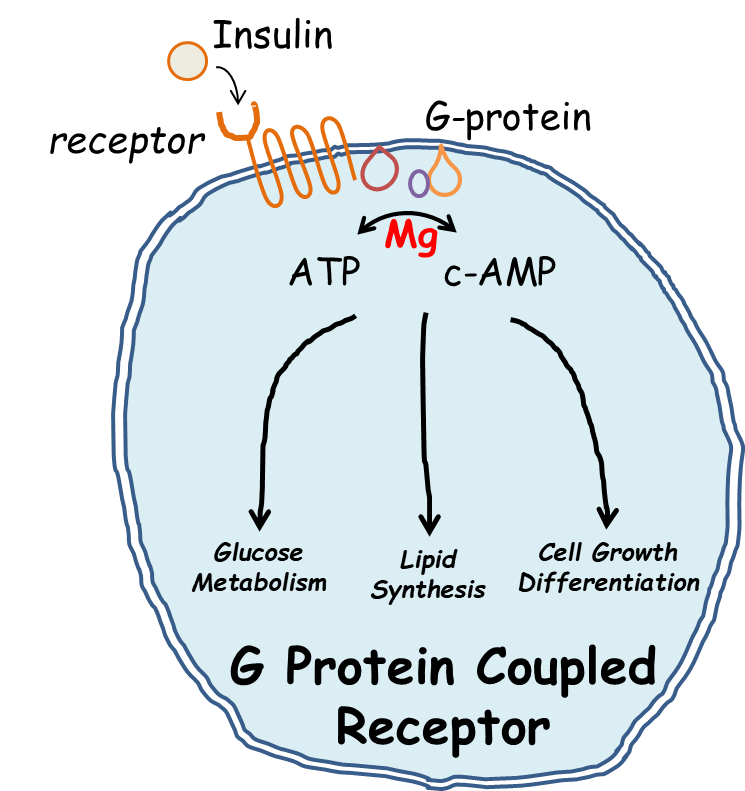
Receptor Dysfunction
Every receptor needs Mg to function. It is involved in the generation of cyclic-AMP and the activation of tyrosine kinase – both critical for receptor function.
The Diabetes Example:
When Mg stores are low, more and more insulin is needed for proper glucose management leading to insulin resistance, and ultimately diabetes.
When Magnesium is low, dysfunction occurs.
Magnesium is found everywhere in the body – the skeleton, intracellular, and plasma. In plasma, Mg (bound and ionized forms) is known to regulate a bunch of processes.
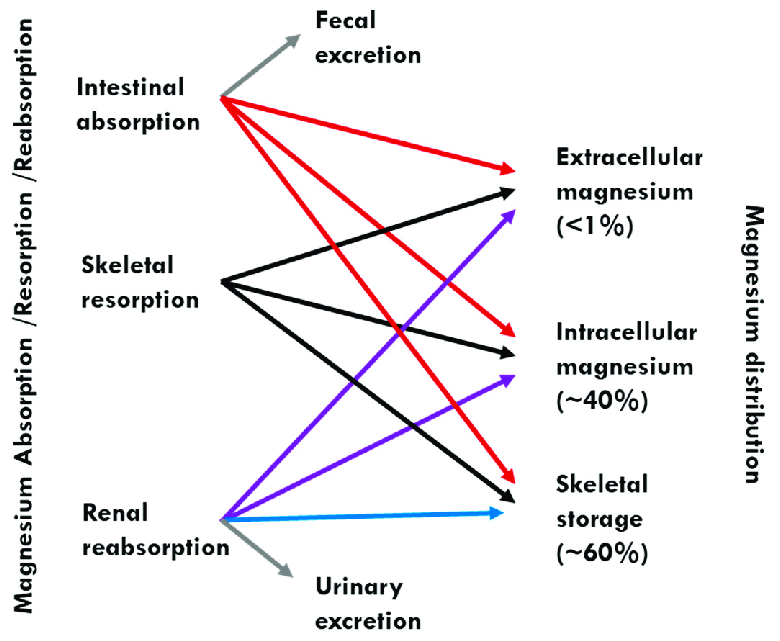
Hypomagnesemia is frequently encountered in much of the western world, which consumes processed-food diets. Chronic deficiencies in Mg can lead to a wide range of diseases due to impaired receptor function such as diabetes, or calcium disorders due to Mg effect on the calcium sensing receptor (CaSR). We’ll explore the CaSR in part 2 of – What’s the Deal with Magnesium.
Magnesium (Mg) plays an important role in many enzymatic reactions, particularly those that involve cellular receptors. The consequence of low stores of Mg leads to chronic receptor dysfunction and ultimately:
- Insulin resistance and diabetes
- Cytokine increases and inflammation
- Hypertension and CVD
- Advancement of chronic kidney disease
- Progression of cancer
- Calcium imbalances via Calcium Sensing Receptor (CaSR)
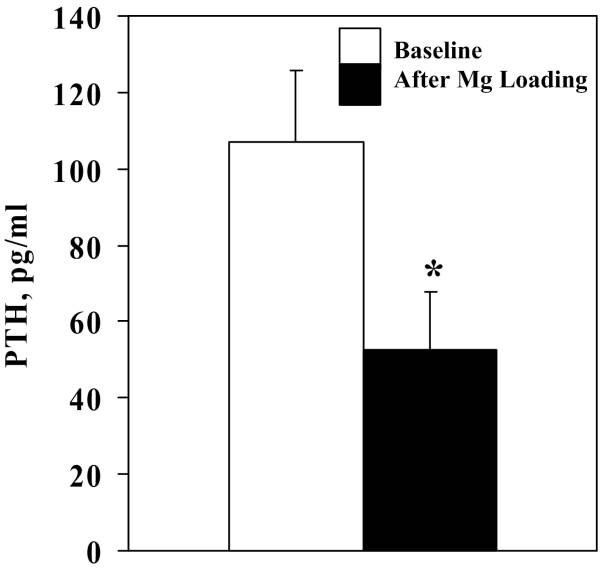
CaSR
Research now proves the CaSR, present in the PTH gland, intestines, and kidneys, regulates BOTH calcium and Mg.
In patients with hypomagnesemia, the CaSR will upregulate the production of PTH to absorb (& resorb from bone) more Mg and Ca. Secondary hyperparathyroidism, as a consequence of low Mg, can occur.
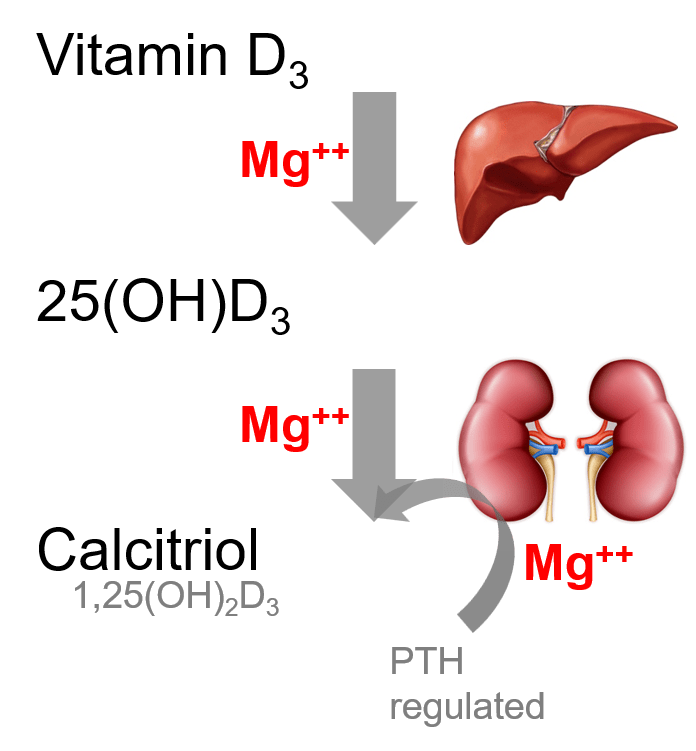
Mg is required for the two hydroxylations and the PTH regulation of Vitamin D.
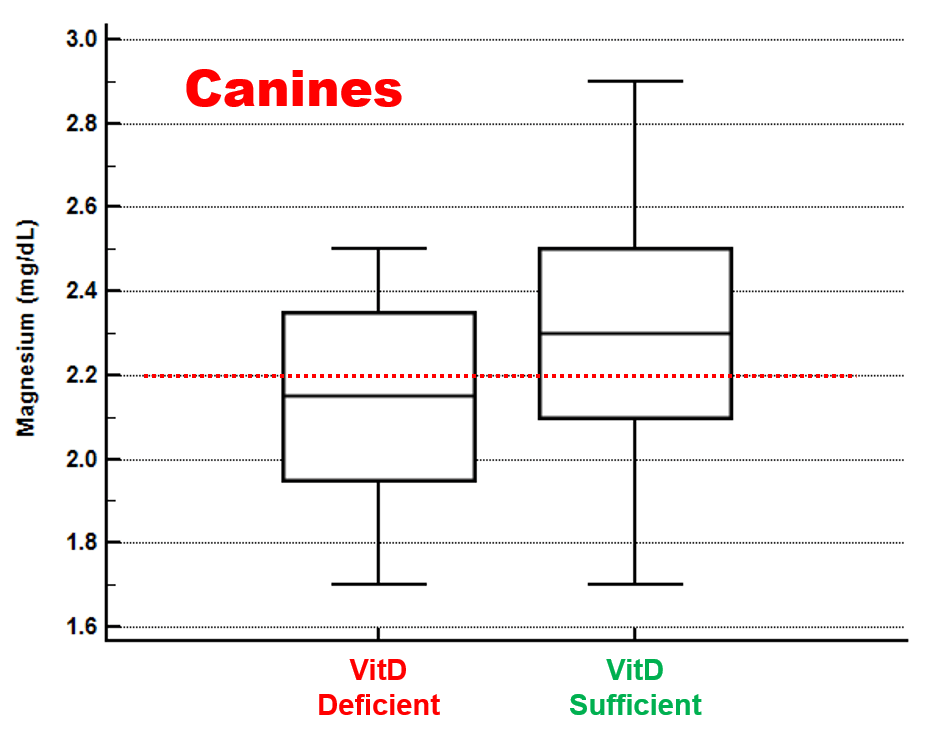
Studies show that low stores of Mg are associated with Vitamin D deficiency and those failing to respond to Vitamin D3 supplementation.
Magnesium sufficiency is required for proper Vitamin D metabolism
Like many essential vitamins and nutrients in the diet, magnesium requires a certain condition to allow for maximum absorption. This condition depends highly on calcium, and more specifically the ratio of Mg to calcium. Both Calcium and Mg are tightly regulated via the Calcium Sensing Receptor (CaSR) and has influence on the parathyroid gland for PTH secretion, intestines for absorption, and kidneys for excretion. Both divalent cations and compete for absorption.
Western diets and processed foods are often high in calcium and low in Mg resulting in hypomagnesemia. As the Ca/Mg ratio approaches 3.0, the incidence of diabetes increases as a result of receptor dysfunction.
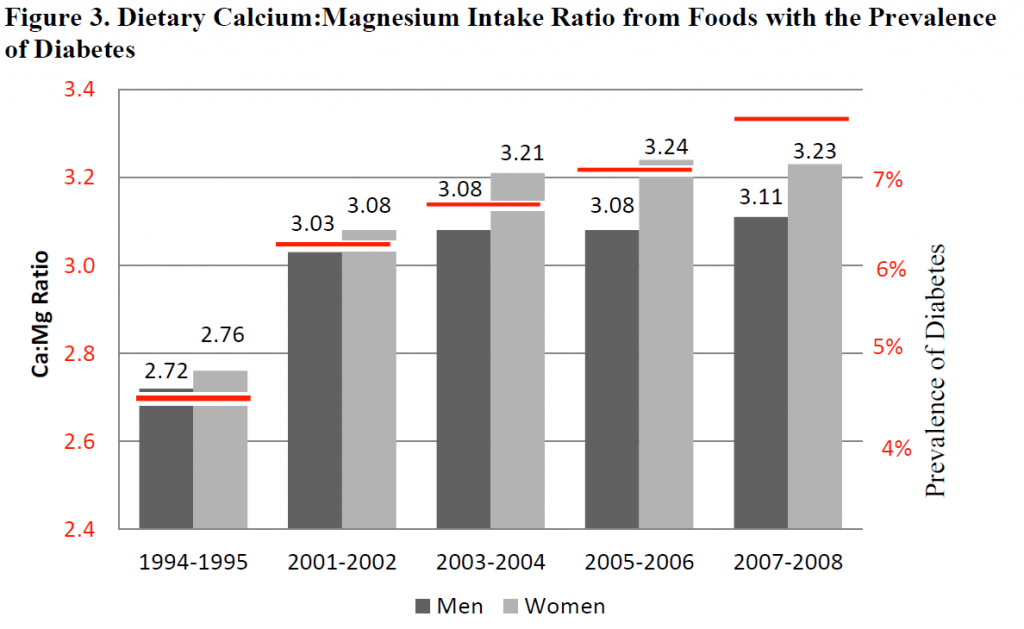
Optimum dietary Ca/Mg ratio is between 2.0 – 2.6
References:
Hypomagnesemia
Agus Z, J Am Soc Nephrol, 1999
Secondary hypoparathyroidism attributed to hypomagnesemia in a dog with protein-losing enteropathy
Bush W, et al, J Am Vet Med Assoc, 2001
Effects of hypercalcemia on serum concentrations of magnesium, potassium, and phosphate and urinary excretion of electrolytes in horses
Toribio R, et al, AJVR, 2007
Antidepressant Medication Use, Weight Gain, and Risk of Type 2 Diabetes, Diabetes Care
Kivimaki M, et al, Epidem Health Serv Res, 2010
Magnesium Intake in Relation to Systemic Inflammation, Insulin Resistance, and the Incidence of Diabetes
Kim D, et al, Epidem Health Serv Res, 2010
Sensing mechanisms involved in Ca and Mg homeostasis
Ferre S, et al, Intl Soc of Nephrol, 2012
Hypovitaminosis D: A Contributor to Psychiatric Disorders in Elderly?
Ford J, et al, Canadian Geriatrics J, 2012
Evaluation of 25(OH) Vitamin D3 with Reference to Magnesium Status and Insulin Resistance in T2DM
Gandhe M, et al, J Clin Diag Res, 2013
CaSR-mediated interactions between calcium and magnesium homeostasis in mice
Quinn S, et al, Am J Phy Endo Metabol, 2013
Magnesium, vitamin D status and mortality: results from US National Health and Nutrition Examination Survey (NHANES) 2001 to 2006 and NHANES III
Deng Z, et al, BMC Med, 2013
Modifying effect of calcium/magnesium intake ratio and mortality: a population based cohort study
Dai Q, et al, BMJ, 2013
Magnesium deficit – overlooked cause of low vitamin D status?
Zittermann A, BMC Med, 2013
Calcium-sensing receptor (CaSR) mutations and disorders of calcium, electrolyte and water metabolism
Hannan F, et al, Best Pract. Res. Clin. Endocr. Metab. 2013
Relationship of Serum Magnesium and Vitamin D Levels in a Nationally-Representative Sample of Iranian Adolescents: The CASPIAN-III Study
Kelishadi R, et al, Intl J Prev Med, 2014
Renal Control of Calcium, Phosphate, and Magnesium Homeostasis
Blaine J, et al, Clin J Am Aoc Nephrol, 2015
Calcium, Magnesium And The Metabolic Syndrome In The 2001-2010 Nahanes Adult Data Using Regression And Structural Equation Modeling Methods
Moore, L, Case Western Uni Thesis, 2015
Magnesium and type 2 diabetes
Barbagallo M, et al, World J Diabetes, 2015
The Calcium-Sensing Receptor and the Parathyroid: Past, Present, Future
Conigrave, A, Frontiers in Phy, 2016
Serum Magnesium and Vitamin D Levels as Indicators of Asthma Severity
Shaikh M, et al, Pulmon Med, 2016
Effect of proton pump inhibitors on magnesium balance: is there a link to cardiovascular risk?
Pisani L, et al, Mg Res., 2016
Suppression of Parathyroid Hormone in a Patient with Severe Magnesium Depletion
Sangeeta M, Case Rpts Nephrol, 2016
Essential Nutrient Interactions: Does Low or Suboptimal Magnesium Status Interact with Vitamin D and/or Calcium Status?
Rosanoff A, et al, ASN, 2016
Diseases associated with calcium-sensing receptor
Vahe C, Orphanet J Rare Dis, 2017
Magnesium status and supplementation influence vitamin D status and metabolism: results from a randomized trial
Dai Q, et al, Am J Clin Nutr, 2018
Magnesium in Chronic Kidney Disease: Should We Care?
Van de Wal-Visscher E, et al, Blood Purif, 2018
Magnesium: Are We Consuming Enough?
Razzaque M, Nutrients, 2018
Magnesium enhances the chondrogenic differentiation of mesenchymal stem cells by inhibiting activated macrophage induced inflammation
Hu T, et al, Nature, 2018
Magnesium Is a Key Regulator of the Balance between Osteoclast and Osteoblast Differentiation in the Presence of Vitamin D3
Mammoli F, et al, Inter J Mol Sci, 2019
Magnesium Is a Key Player in Neuronal Maturation and Neuropathology
Yamanaka R, et al, Inter J Mol Sci, 2019
Low serum magnesium is associated with faster decline in kidney function: the Dallas Heart Study experience
Ferre S, et al, J Invest Med, 2019
Serum ‘Vitamin-Mineral’ Profiles: Associations with Postmenopausal Breast Cancer Risk Including Dietary Patterns and Supplementation. A Case-Control Study
Krusinska B, et al, Nutrients, 2019
Association of serum magnesium with type 2 diabetes mellitus and diabetic retinopathy
Kumar P, et al, J Family Med Prim Care, 2019
